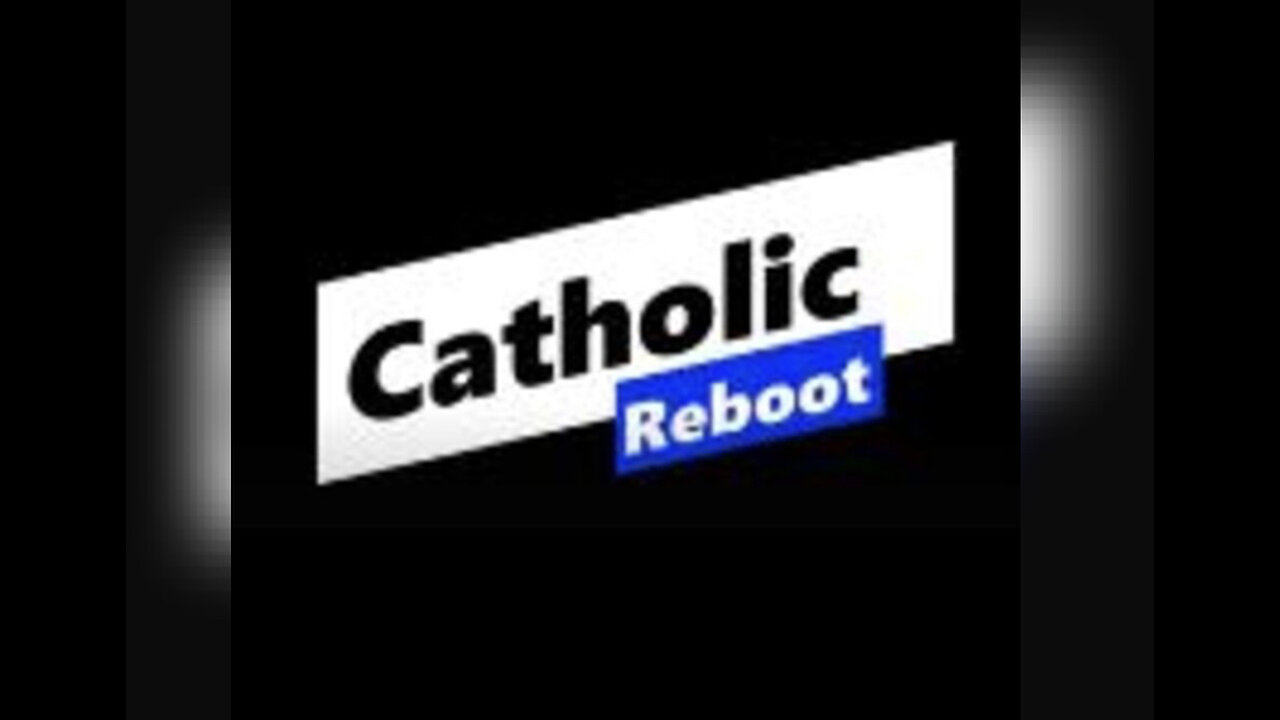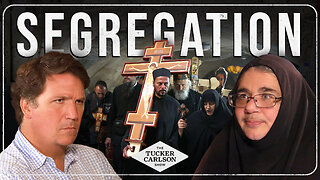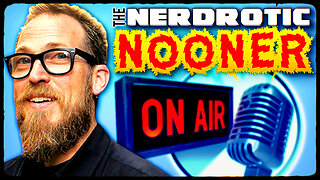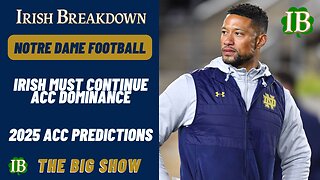Premium Only Content

Episode 2397: Abandoning the Shepherd's Staff: A Crisis in Modern Catholic Leadership
Today, we're tackling a critical issue facing the modern Church: the abandonment of the shepherd's vocation by many of our priests and bishops. We'll discuss how this shift from spiritual leadership to administrative roles has led to a crisis in the Church, affecting the faithful deeply.
The Role of the Shepherd
Let's begin by understanding what it means to be a shepherd in the context of the Catholic Church. Traditionally, priests and bishops are called to be shepherds of their flock, guiding the faithful towards a life of holiness and sanctity. This role involves not just leading by example but also speaking the absolute truths of the faith, even when it is difficult or unpopular. St. John Vianney, the patron saint of parish priests, once said, "The priesthood is the love of the heart of Jesus. When you see a priest, think of our Lord Jesus Christ."
Unfortunately, in many instances today, this profound vocation seems to be overshadowed by administrative duties and the fear of backlash from parishioners and superiors.
From Shepherds to Administrators
Over the past few decades, there has been a noticeable shift in the role of priests and bishops. Instead of being spiritual leaders, many have become more like CEOs, focusing on the administrative aspects of running parishes and dioceses. This shift has had several detrimental effects on the Church.
Firstly, the reluctance to preach the hard truths of the Catholic faith from the pulpit. Out of fear of retaliation from certain parish members or even their own bishops, many priests shy away from discussing topics that could be seen as controversial. This fear leads to a diluted message, one that is more palatable to modern sensibilities but far removed from the magisterial teachings of the Church.
Secondly, the emphasis on political correctness over doctrinal fidelity. Bishops, in particular, seem to be more concerned with maintaining a positive public image and adhering to contemporary social norms rather than upholding the timeless truths of the faith. This has led to a situation where the faithful are not being properly guided, often falling into error due to the lack of clear and courageous leadership.
The Scandal of Irreverence
Another alarming trend is the lack of reverence displayed by many clergy members during the Holy Sacrifice of the Mass and in their conduct towards the Blessed Sacrament. The Mass is the highest form of worship in the Catholic Church, yet we often see a casual approach that undermines its sanctity.
The lack of proper clerical dress, such as the cassock, further diminishes the sense of sacredness. The cassock is a symbol of the priest's dedication and separation from worldly affairs, and its abandonment is a visible sign of the clergy's drift from their true vocation.
Additionally, the infrequent provision of the Sacrament of Confession is a grave concern. Confession is essential for the faithful to reconcile with God and receive His grace. When priests do not make themselves available for this sacrament, they deny their flock the opportunity for spiritual healing and growth.
The Impact on the Faithful
The consequences of these issues are profound. The faithful are left scandalized by the lack of holiness and proper guidance from their leaders. When priests and bishops do not live up to their vocation, it erodes trust and damages the Church's credibility.
From a traditional Catholic perspective, this situation is deeply troubling. The Church's mission is to lead souls to Christ, and this can only be achieved through unwavering commitment to the truths of the faith and the reverent celebration of the sacraments.
Returning to True Shepherding
So, what can be done? The solution lies in a return to the true vocation of the priesthood and episcopacy. Priests and bishops must recommit to being shepherds in the fullest sense, embracing their role as spiritual leaders and guardians of the faith. This means preaching the hard truths, regardless of the potential backlash, and fostering a deep reverence for the sacraments and liturgical traditions.
We, the faithful, also have a role to play. We must pray for our clergy, support them in their mission, and hold them accountable to the high standards of their vocation. By doing so, we can help restore the Church to its true purpose: leading souls to Christ.
Thank you for joining me today. I hope this episode has shed light on the challenges facing our Church and inspired you to take action in your own parish and community. Remember, the strength of the Church lies in the faith and commitment of its members, both clergy and laity.
Until next time, may God bless you and keep you in His grace.
-

Matt Kohrs
1 hour agoRumble Recap: Big Things Coming w/ CEO Chris Pavlovski
26.5K4 -
 LIVE
LIVE
Tucker Carlson
50 minutes agoHere’s What It’s Really Like to Live as a Christian in the Holy Land
3,101 watching -
 LIVE
LIVE
Dr Disrespect
2 hours ago🔴LIVE - DON DISRESPECTO - MAFIA OLD COUNTRY - OFFICIAL GAMEPLAY
2,492 watching -
 LIVE
LIVE
Sean Unpaved
1 hour agoFirst Snaps & Two-Way Stars: QB Debuts and Hunter's NFL Fit
190 watching -
 1:05:51
1:05:51
Timcast
2 hours agoTrump Seizes Control of DC Police, Deploys National Guard As Crime Skyrockets
120K77 -
 2:09:22
2:09:22
Steven Crowder
4 hours ago🔴 BREAKING: Trump Declares Federal Control of DC
254K168 -
 LIVE
LIVE
Nerdrotic
4 hours ago $0.11 earnedNerdrotic Nooner 506
602 watching -
 DVR
DVR
Neil McCoy-Ward
1 hour ago🔥 You Won’t Believe What The UK Government Just ADMITTED! 🇬🇧
5.61K2 -
 LIVE
LIVE
Rebel News
1 hour agoMontreal Pride drama, Jewish father attacked, Atlantic Canada climate lockdown grows | Rebel Roundup
810 watching -
 LIVE
LIVE
IrishBreakdown
2 hours agoNotre Dame Must Continue Its Dominance Over The ACC
327 watching